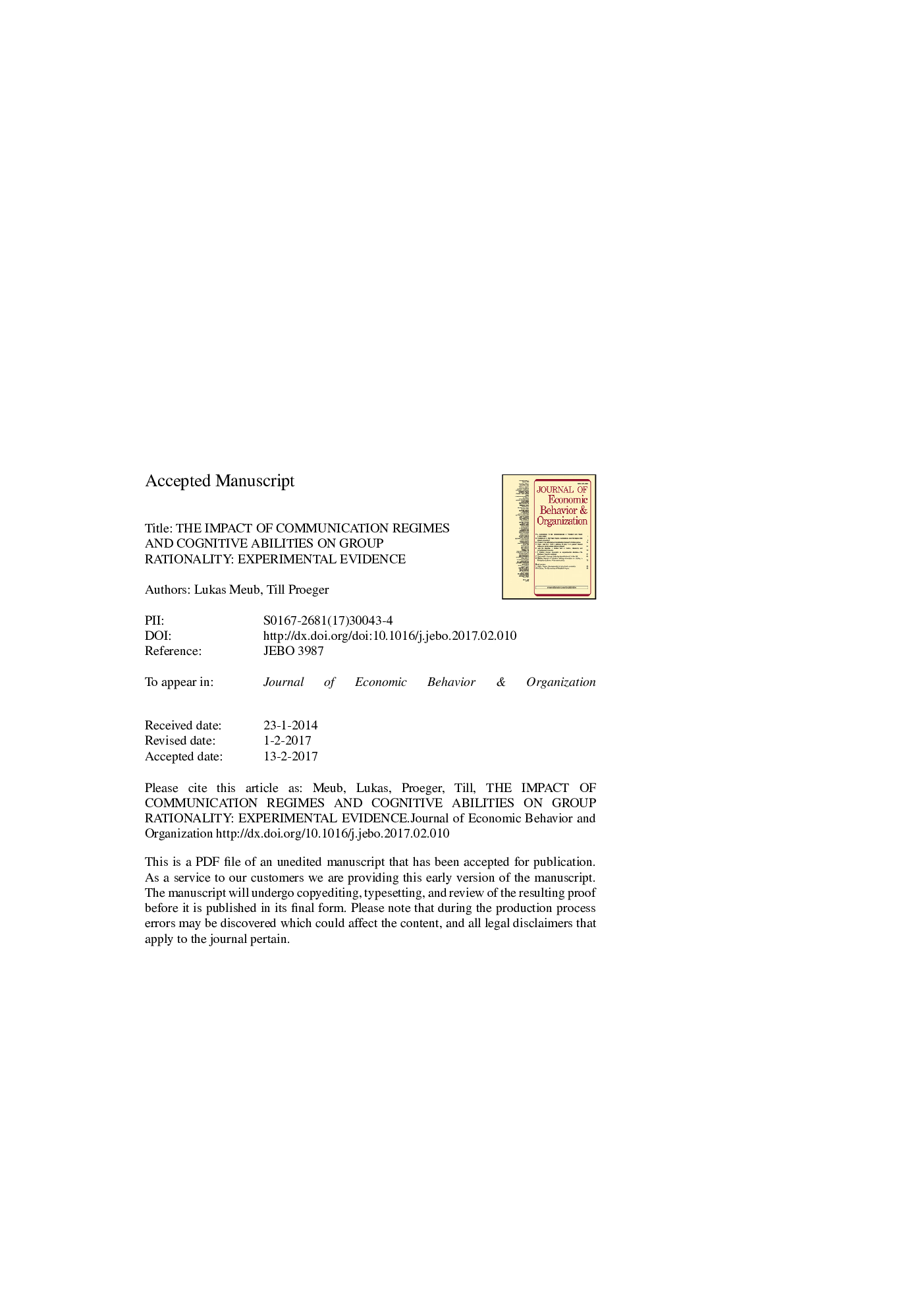| Article ID | Journal | Published Year | Pages | File Type |
|---|---|---|---|---|
| 5034593 | Journal of Economic Behavior & Organization | 2017 | 27 Pages |
Abstract
The performance of groups has been thoroughly investigated in experimental economics, showing that groups are overall more rational deciders than individuals. However, while superior group performance in economic experiments has primarily been shown for face-to-face decision making, this has ceased to be the prevalent form of communication in many IT-based organizations. We conduct a social learning experiment to compare group rationality under conditions of virtual and face-to-face communication. Group matching is conducted based on cognitive abilities to determine its impact on group rationality. Despite the more challenging transmission of information, we find that virtual communication does not reduce overall group rationality. There is no evidence that group performance is driven by a cognitively superior group member, which hints at the relevance of the process of group discussions. Our results have methodological implications for the further study of group performance in experimental economics, as well as practical consequences for the choice of communication structures and team composition within decentralized organizations.
Related Topics
Social Sciences and Humanities
Economics, Econometrics and Finance
Economics and Econometrics
Authors
Lukas Meub, Till Proeger,
